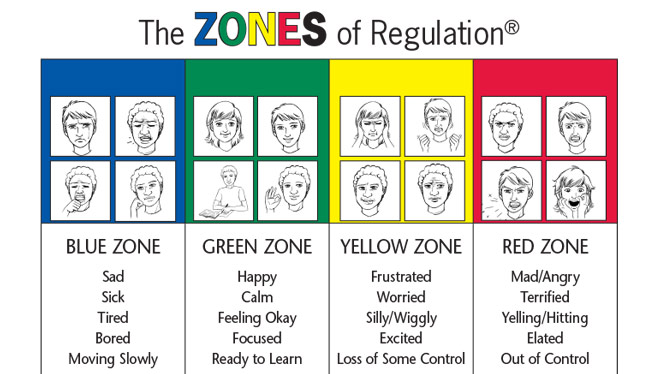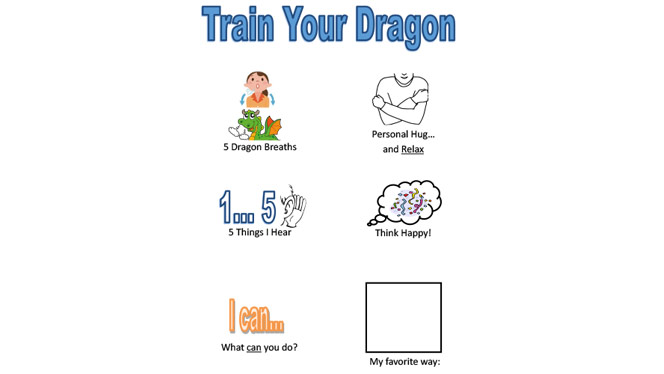Guiding and supporting children to identify, understand, and cope with their emotions and feelings enables them to lead a more balanced and stable life, both inside the classroom and out.
Christa Schwarz, achievement and behavior support specialist at Walker Charter Academy, is in the first year in her role and is preparing to kick off six-week-long skills groups. Given the current landscape of COVID-19, she switched up her original plan and chose to focus on anxiety and anger.
“Groups such as this work to build skills that are important whether we're in a pandemic or not,” she shared. “Understanding and self-regulating your emotions is such a big part of school. It's part of achieving your goals, whether they're academic or personal. As a culture, we're really busy. It’s great that we can come alongside kids in school and support them through learning some of these things that are hard to get in during the week.”
Schwarz follows methods that are more relatable for students, taking into consideration their age and grade level. One of her frequently used methods includes bibliotherapy, a therapeutic approach using books and other forms of literature to support an individual’s mental health. 
With younger students, Schwarz reads through “Help Your Dragon Deal with Anxiety” by Steve Herman, “Train Your Angry Dragon” by Steve Herman, “Anh’s Anger” by Gail Silver, and “Step and Stones” by Gail Silver. With her guidance and book references, students are provided with ways to cope with anxiety and anger. These strategies include taking five dragon breaths, giving oneself a personal hug, listing five things they can hear, thinking happy thoughts, and more.
For older students, she focuses on group discussions, handouts, talking about what students have control over and what they do not. Schwarz also spends time educating older students on brain chemistry and what our brain is doing in those moments so they can understand where the anxiety is coming from. Each week she will work with students and go through a different skill for handling anxiety and focus on that.
Schwarz’s goal is for students to learn coping skills and have them be able to be more independent with their emotions. Not being able to cope with feelings or emotions can be a hurdle for achievement at school and in life for students.
Schwarz uses the zones regulation, which provides students a visual for where their emotions are. For example, the blue zone is sad, sick, tired bored, moving slowly; the green zone is happy, calm, feeling ok, focused, ready to learn; the yellow zone is frustrated, worried, silly/wiggly, excited, loss of some control; and the red zone is mad/angry, terrified, yelling/hitting, elated, and out of control.
“If we are more self-aware of where we're at, it's easier for us to recognize when we need to use tools or coping skills to come back down,” Schwarz explained. “The whole idea is that none of the zones are bad. We’re all human and we go through emotions. It's all about recognizing where we're at.”
The same thing isn't going to work for every kid and that's why Schwarz wants them to be able to go through and try and figure out what works for them. Her favorite part of her job has always been teaching kids to be more independent with their emotions and to be able to increase those coping skills.
“It’s important to note that anxiety isn’t always loud,” said Schwarz. “There are kids who struggle with executive functioning skills and can't keep their binder together enough to be able to turn their papers and it's not always loud. Those are all behaviors we can help kids gain the skills to be able to learn and grow.”
Future groups that she plans to offer to students include test anxiety, bullying, friendship building, and social skills, to name a few.
About Walker Charter Academy
Walker Charter Academy is a tuition-free, public charter school in Walker, Mich., serving students in Young 5s through eighth grade. It is part of the National Heritage Academies (NHA®) network, which includes more than 100 tuition-free, public charter schools serving more than 65,000 students in kindergarten through 12th grade across nine states. For more information, visit nhaschools.com.
Visit Walker Charter Academy's blog to read more stories like this.
